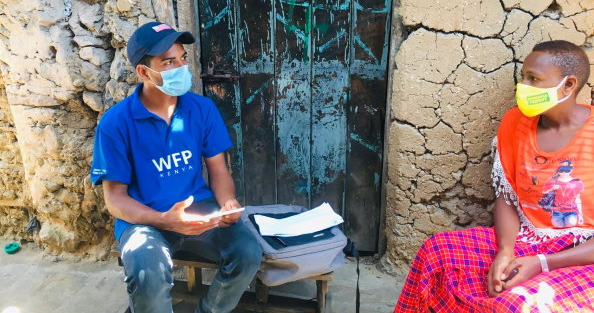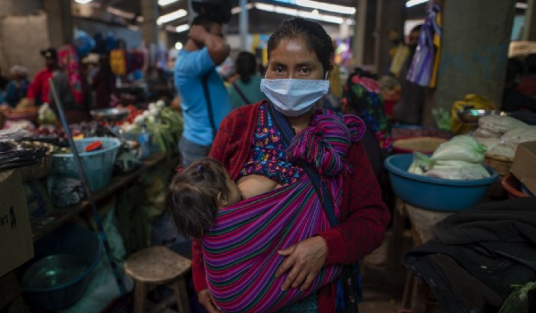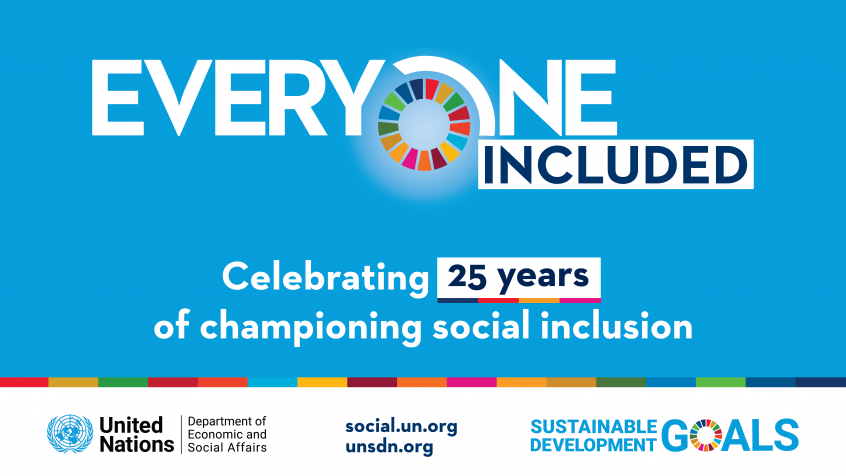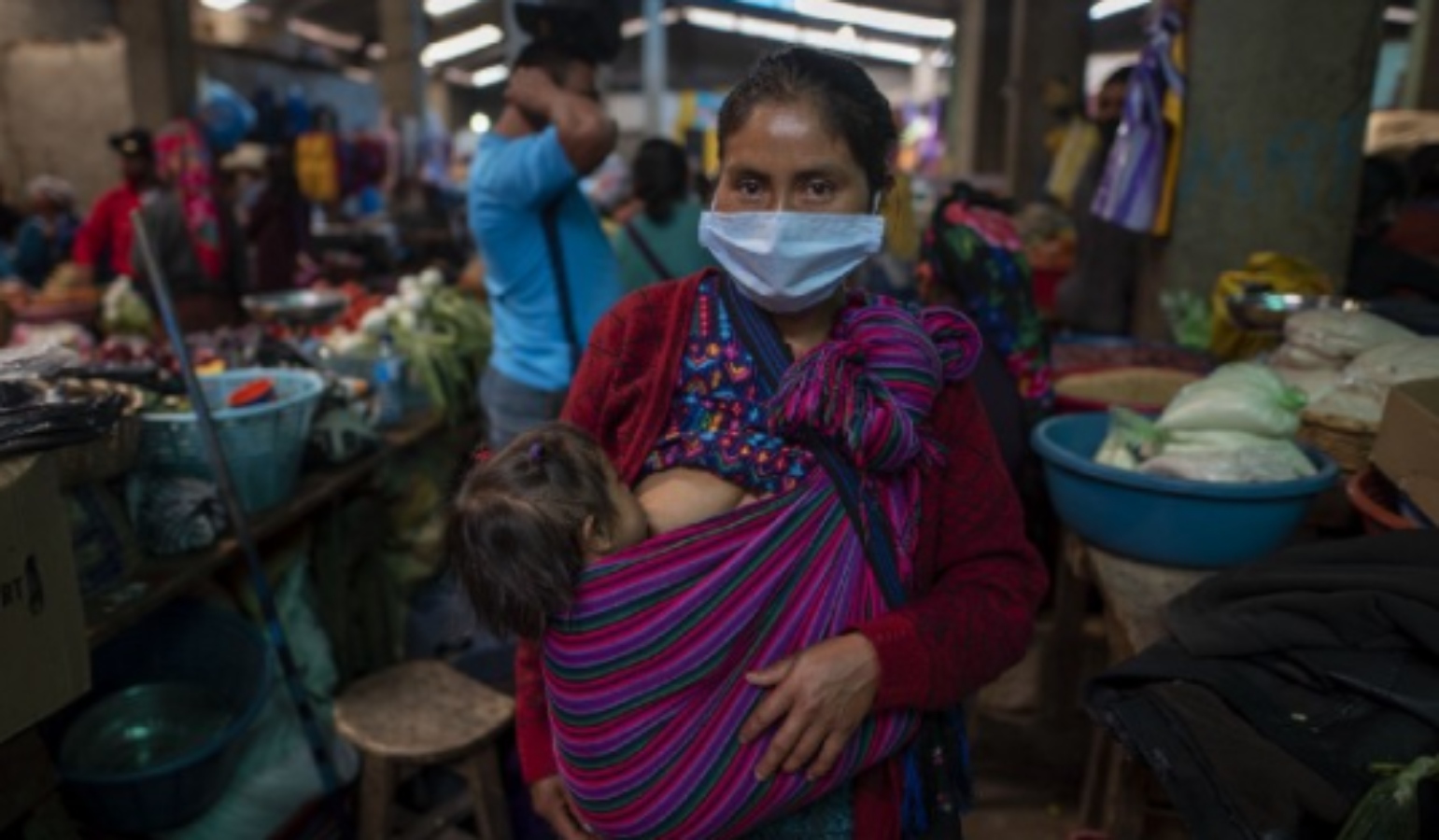
Re-setting Inclusive Social Policies for Resilience to build back better from COVID-19 crisis: Addressing inequalities in access to basic services and infrastructure
Background
The General Assembly, in its resolution 74/122, decided to devote one high-level meeting of the General Assembly, within existing resources, at its seventy-fifth session, in 2020, to the commemoration of the twenty-fifth anniversary of the World Summit for Social Development, in order to celebrate the progress made so far and to further strengthen the role of social development beyond 2020, and requests the President of the General Assembly to conduct consultations with Member States in order to determine the modalities for that meeting.
In the same resolution, the General Assembly also invited the Economic and Social Council and the Commission for Social Development to give appropriate consideration to the commemoration of the twenty-fifth anniversary of the World Summit by organizing a meeting during the regular programme of work of the substantive session of the Council and a half-day meeting during the fifty-eighth session of the Commission, within existing resources. Due to COVID-19 implications, ECOSOC postponed the commemoration to a later date.
At the Ministerial Forum convened during the 58th session of the Commission for Social Development (Feb. 2020), Member States reaffirmed that the visions, principles, and commitments made at the World Summit for Social Development (Copenhagen, March 1995) remain valid today, and are even more critical to address emerging global challenges, such as widening inequality, changing population dynamics, the ongoing effects of climate change and natural disasters, rapid technological change and its impact on the future of work. These challenges, compounding existing obstacles for social development, have significant impact on the abilities of Governments to achieve the 2030 Agenda and its Sustainable Development Goals.
Objective
The twenty-fifth anniversary of the World Summit for Social Development is an opportunity to reset inclusive social policies, based on the lessons learned, including during the COVID-19 crisis, and to help countries build back better with greater resilience to meet the future challenges for achieving Sustainable Development Goals for all.
Rationale for Re-setting Social Policies for Greater Resilience and Inclusion in the Post-COVID Era
The COVID-19 pandemic has turned into a multi-faceted social, economic and financial crisis, affecting peoples across regions. The virus has exposed the weakness of national health systems due to many years of under-investment, inadequacy of social protection systems and the acute vulnerability of marginalized communities and people living in poverty. The disruption of supply chains and projected fall in aggregate demand compounded by falling remittances and commodity prices, and job losses has pushed the world into recession with devastating consequences, particularly for middle- and low-income countries with limited capacities to respond. Millions of people have been pushed into poverty as a result. It is also expected that existing inequality within and among countries would rise.
While the full magnitude and the scale of the social impact of the COVID-19 crisis are yet to be determined, we risk losing decades of hard-earned progress in the implementation of the outcome of the Social Summit and the 2030 Agenda for Sustainable Development and the SDGs. The COVID-19 crisis reaffirmed the need of putting people at the center of development to address existing inequality in opportunity and access to health care, quality education, food, sustainable energy, clean drinking water and sanitation, adequate housing, technologies, especially ICTs, employment and decent work and resources. The virus has also highlighted the need of infrastructure development in these areas, especially in developing countries. Although the virus indiscriminately affects all people regardless of their backgrounds, these pre-existing inequalities are differentiating its impact during and in recovery from the crisis.
The COVID-19 crisis weakens government’s capacity, especially in developing countries, to achieve the objectives of the 2030 Agenda. Many governments diverted limited financial resources away to temporary/ad hoc measures to protect people and jobs. Once the health crisis subsides, there is a risk that governments may be tempted to cut the social spending, necessary to achieve inclusive and sustainable development.
Recovery from the crisis is an opportunity to transition towards more inclusive and resilient societies, if we act together and chose a right socio-economic policy framework. This would entail, among others, integrated social policies that reduce poverty and inequalities simultaneously and enhance people’s capabilities and resilience, through promoting universal access to basic social services and protection. Such an integrated policy framework can be developed in response to needs emerging from the current crisis and designed in a participatory manner based on good practices, lessons learned, innovative approaches, and evidence-based and data-driven solutions that also benefitted from innovative technologies and adequate resources. Further, to help developing countries recover better and get back on track to achieve the 2030 Agenda, the international community should assist countries in need to take appropriate measures, including fiscal stimulus and the extension of social protection coverage, to sustain livelihoods and food security, aggravate demands, and sustain economic growth.
On Tuesday, 1 December 2020, at 11.30 a.m. the joint informal high-level commemorative meeting of the General Assembly and the Economic and Social Council will be held in-person in the General Assembly Hall, UNHQ. In addition to the statements by the President of General Assembly, the President of the Economic and Social Council, and the UN Secretary-General, the Chair of the Commission for Social Development, USG of UNDESA and an eminent person will be invited to address the meeting. In keeping with the format of the commemorative meetings, Member States are encouraged to deliver regional statements during this meeting.
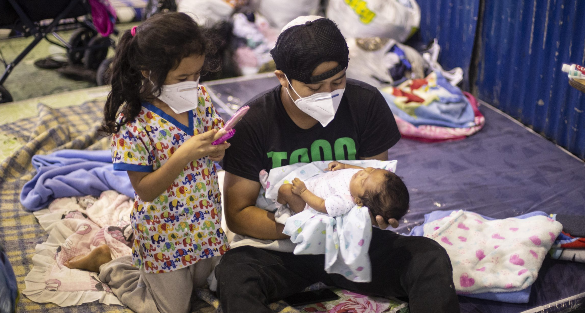
The Commemorative event will, inter-alia, enable Member States and other stakeholders to:
- Renew commitments to social development for the implementation of the 2030 Agenda with no one left behind;
- Identify gaps and challenges of the current socio-economic development framework and share good practices and lessons learned in enhancing people’s capabilities and resilience and combatting poverty and inequality through ensuring equal access to basic services and social protection for all, in recovery from COVID-19;
- Implement inclusive social policies to get back on track to implement the 2030 Agenda after the COVID-19 crisis;
- Mobilize adequate financial resources to support inclusive social policies and the provision of adequate health and other infrastructure supportive of social development;
- Re-affirm solidarity and cooperation of the international community to assist countries in need to take appropriate measures.
The enumerated outcome will provide Member States opportunities for innovative approaches towards implementing their commitments to building resilience, inclusive and sustainable social policies for addressing in-equalities in accessing basic services. Presidents’ informal summary of the meeting will be circulated in due course.
Statements
Resources
Celebrating 25 years of Championing Social Inclusion
For more information, please visit the 75th General Assembly of the United Nations.
 Welcome to the United Nations
Welcome to the United Nations
